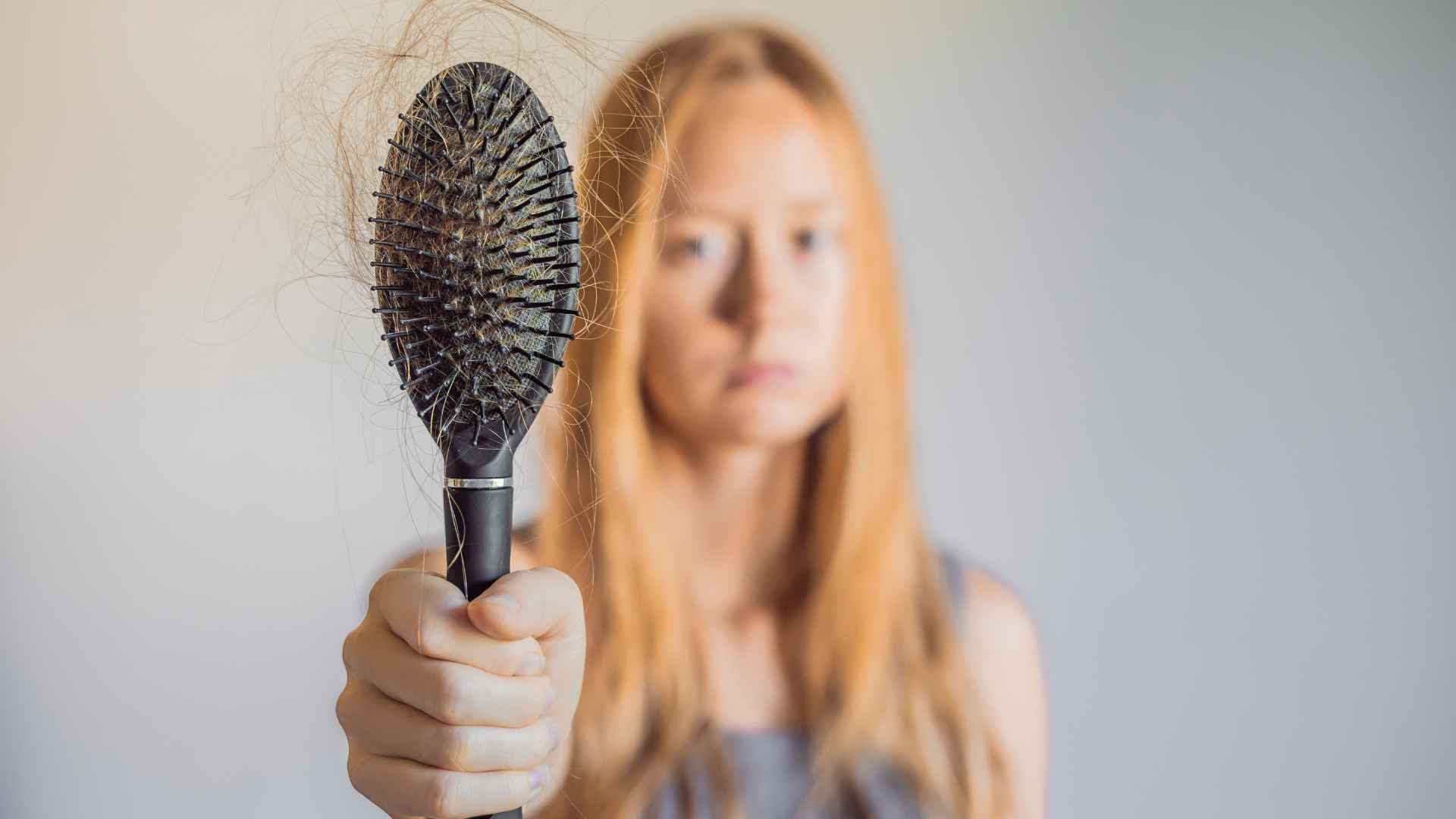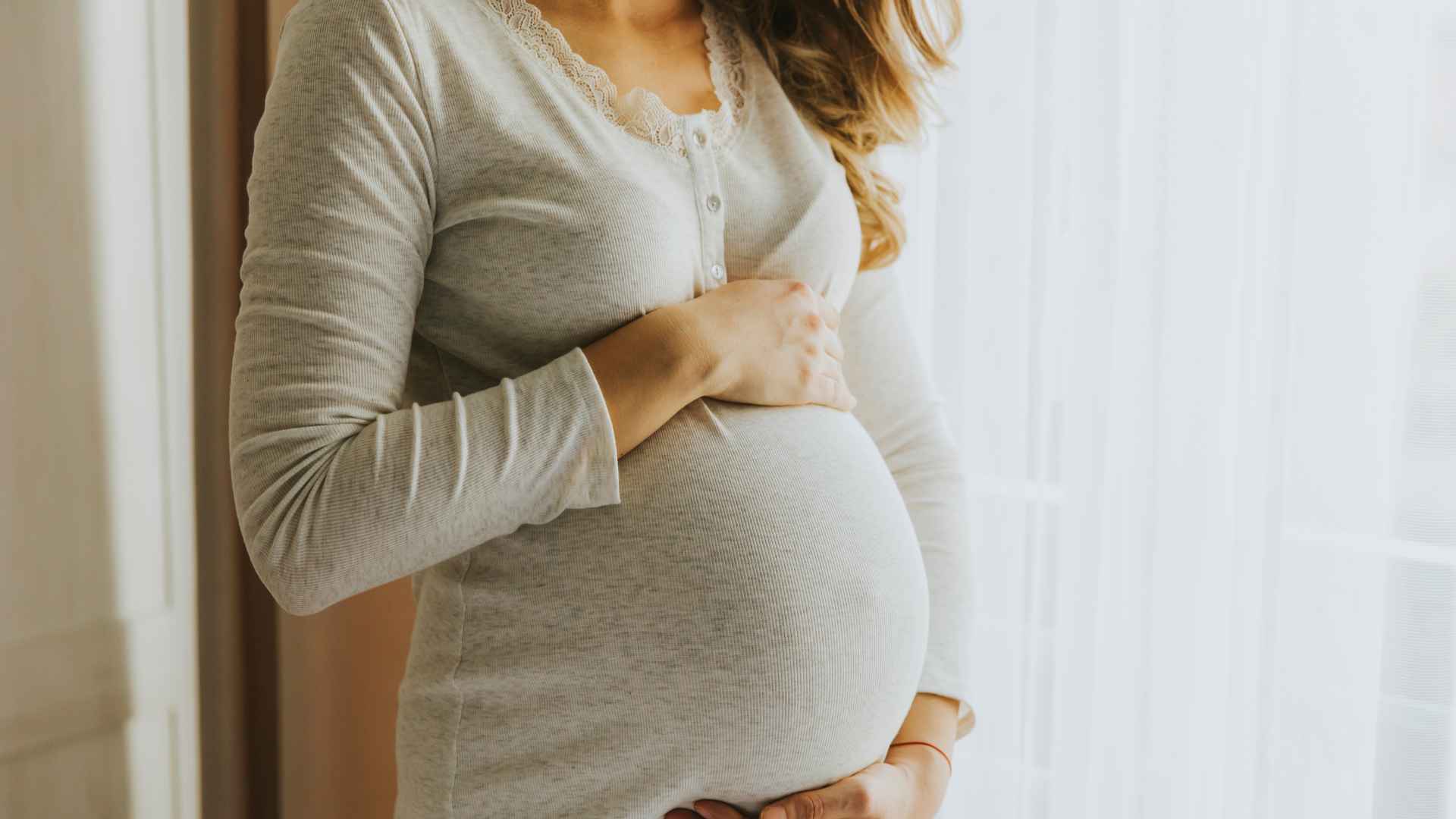Are you concerned about hair loss during pregnancy? Many individuals wonder about the potential link between pregnancy and hair loss. In this article, we aim to delve into the scientific evidence and shed light on the connection between hair loss and pregnancy.
Pregnancy is a transformative time for the body, and changes in hormone levels can affect various aspects of health, including hair. We will explore the potential causes of hair loss during pregnancy, the normal hair growth cycle, and provide insights into how to manage and understand this temporary condition. So, let’s explore the connection between hair loss and pregnancy and gain a better understanding of this common concern.
Understanding Hair Growth and Pregnancy

Understanding the normal hair growth cycle is essential to comprehend the changes that occur during pregnancy. The hair growth cycle consists of three phases:
- Anagen Phase (Growth Phase): This is the active phase of hair growth. Hair follicles produce new cells, and hair grows steadily during this phase, which typically lasts for 2 to 7 years. The length of the anagen phase determines the maximum potential length of an individual’s hair.
- Catagen Phase (Transition Phase): In this short transitional phase, the hair follicle detaches from the blood supply and stops producing new cells. It lasts for about 2 to 3 weeks.
- Telogen Phase (Resting Phase): During this phase, the hair follicle remains dormant and does not produce new hair. It lasts for approximately 2 to 3 months. After the telogen phase, the hair sheds, and the cycle restarts with the growth of a new hair strand.
During pregnancy, hormonal changes occur that can affect the hair growth cycle. One notable change is the increase in estrogen levels. Elevated estrogen levels during pregnancy can prolong the anagen (growth) phase, leading to reduced hair shedding and a higher number of hairs in the growth phase. This can result in thicker, fuller hair during pregnancy, giving some individuals the impression of enhanced hair volume and improved hair quality.
It’s important to note that not all pregnant individuals will experience significant changes in hair thickness or volume. The extent of these changes varies among individuals, and factors such as genetics and overall health can influence the effects of pregnancy hormones on hair growth.
Postpartum Hair Loss
Postpartum hair loss is a common phenomenon that occurs after childbirth and is experienced by many individuals. It is important to note that postpartum hair loss is not exclusive to pregnancy itself but rather a natural response to the hormonal changes that take place during pregnancy.
During pregnancy, elevated estrogen levels prolong the growth phase of the hair, resulting in reduced shedding and thicker hair. However, after giving birth, hormonal levels start to normalize, and the hair cycle readjusts. This leads to an increased number of hair follicles entering the resting (telogen) phase, which is followed by shedding.
The shedding of postpartum hair typically begins around three to six months after childbirth and can last for several months. It is important to understand that this is a temporary condition and does not indicate a permanent loss of hair. The hair follicles eventually resume their normal growth cycle, and new hair begins to regrow.
While postpartum hair loss can be distressing for some individuals, it is considered a normal part of the post-pregnancy journey. Most individuals will notice their hair returning to its pre-pregnancy state within six to twelve months after childbirth.
It’s worth mentioning that the severity of postpartum hair loss can vary among individuals. Factors such as genetics, overall health, and individual hormonal fluctuations may influence the extent of hair loss. If you have concerns about postpartum hair loss or if it persists longer than expected, it is advisable to consult with a healthcare professional for reassurance and guidance.
Hormonal Changes and Hair Loss
Fluctuations in hormone levels, particularly estrogen, play a significant role in hair growth during pregnancy and postpartum periods. Understanding these hormonal changes is crucial to grasp the connection between hormones and hair loss.
During pregnancy, increased estrogen levels prolong the anagen (growth) phase of the hair growth cycle. This results in reduced hair shedding and an increased number of hairs in the growth phase. As a result, many individuals experience thicker and fuller hair during pregnancy.
However, after childbirth, there is a sudden drop in estrogen levels. This hormonal shift can trigger a process known as telogen effluvium, which involves the transition of a large number of hair follicles from the growth phase to the resting (telogen) phase. The resting phase is followed by shedding, leading to an increased amount of hair loss.
The hair shedding associated with postpartum hormonal changes is often noticeable around three to six months after childbirth. It is important to understand that this shedding is a temporary condition and does not indicate permanent hair loss. The hair follicles eventually return to their normal growth cycle, and new hair begins to regrow.
It’s worth noting that not all individuals will experience significant hair shedding after childbirth. The severity and duration of postpartum hair loss can vary among individuals due to factors such as genetics, overall health, and individual hormonal fluctuations.
If you have concerns about hair loss during or after pregnancy, it is advisable to consult with a healthcare professional. They can assess your specific situation, provide reassurance, and offer guidance on managing postpartum hair loss effectively.
Differentiating Hair Loss from Other Causes
Distinguishing hair loss due to pregnancy from other causes is crucial to understand the nature of the hair loss and identify any underlying issues. Here are some key points to consider when differentiating pregnancy-related hair loss from other types of hair loss:
- Widespread Shedding: Hair loss associated with pregnancy, particularly postpartum hair loss, is generally characterized by widespread shedding. You may notice increased hair loss throughout the scalp rather than in specific areas or patterns. This diffuse shedding is a typical hallmark of postpartum hair loss.
- Temporary Nature: Hair loss due to pregnancy is usually temporary and self-limiting. It is a natural response to hormonal changes and tends to resolve on its own within several months after childbirth. In contrast, other types of hair loss, such as pattern hair loss (androgenetic alopecia) or hair loss related to underlying medical conditions, may have a more chronic or progressive nature.
- Lack of Distinct Patterns: Pregnancy-related hair loss does not follow distinct patterns like receding hairlines or specific areas of thinning. It typically affects the overall thickness and volume of the hair. On the other hand, pattern hair loss often exhibits specific patterns of hair thinning or balding, such as a receding hairline in men or thinning at the crown of the head.
- Absence of Underlying Medical Conditions: Pregnancy-related hair loss is primarily a result of hormonal changes and does not indicate an underlying medical condition. However, other types of hair loss may be associated with underlying medical conditions, such as thyroid disorders, autoimmune diseases, or nutritional deficiencies. If you have concerns about your hair loss or if it persists beyond the postpartum period, it is advisable to consult with a healthcare professional to rule out any underlying medical causes.
Differentiating pregnancy-related hair loss from other causes is important for proper diagnosis and appropriate management. If you have any uncertainties or persistent hair loss concerns, it is always recommended to seek guidance from a healthcare professional, such as a dermatologist or a trichologist, who can evaluate your specific situation and provide personalized advice and treatment options.
Coping with Hair Loss during Pregnancy

Coping with hair loss during pregnancy can be challenging, but it’s important to remember that it is usually a temporary condition. Here are some strategies to help manage hair loss during pregnancy:
- Reassurance: First and foremost, it’s essential to reassure pregnant individuals experiencing hair loss that it is a common occurrence during this phase. Hair loss during pregnancy is often a result of hormonal changes and will typically resolve on its own after childbirth.
- Healthy Lifestyle: Adopting a healthy lifestyle can support overall hair health. Ensure you are getting enough sleep, engaging in regular physical activity, and managing stress levels. These practices can contribute to the well-being of your body, including your hair.
- Stress Management: Finding effective ways to manage stress is crucial. Engage in activities that help you relax and unwind, such as meditation, yoga, deep breathing exercises, or engaging in hobbies you enjoy. High-stress levels can potentially exacerbate hair loss, so prioritizing stress management can be beneficial.
- Proper Nutrition: Maintaining a well-balanced diet rich in essential vitamins and minerals can support hair health. Include foods high in biotin, vitamin E, vitamin C, zinc, and iron, which are known to promote healthy hair growth. Consult with a healthcare professional or a registered dietitian for personalized dietary advice during pregnancy.
- Gentle Hair Care: Handle your hair gently to minimize further damage or breakage. Avoid excessive heat styling, harsh chemical treatments, and tight hairstyles that pull on the hair. Opt for gentle shampoos and conditioners formulated for your hair type to maintain its health and minimize breakage.
Remember that hair loss during pregnancy is typically temporary, and your hair should return to its pre-pregnancy state within several months after childbirth. However, if you have concerns or if the hair loss persists beyond the postpartum period, it is advisable to consult with a healthcare professional for a thorough evaluation and personalized guidance.
During this phase, focus on self-care, maintaining a healthy lifestyle, and being patient with your hair. The majority of individuals see their hair rebound and regain its normal thickness and volume over time.
Consulting with Healthcare Professionals
If you are experiencing significant hair loss or have concerns about hair loss during pregnancy, it is highly recommended to consult with healthcare professionals, such as doctors or dermatologists. These professionals have the expertise to assess your overall health, evaluate any underlying conditions, and provide personalized advice and guidance. Here are some reasons why consulting with healthcare professionals is important:
- Evaluation of Overall Health: Healthcare professionals can conduct a thorough evaluation of your overall health, taking into account factors such as hormonal balance, nutritional status, and any underlying medical conditions that may contribute to hair loss. They can determine if there are any specific concerns that need to be addressed.
- Assessment of Hair Loss: Healthcare professionals, particularly dermatologists, are experienced in diagnosing and treating hair loss conditions. They can assess the pattern and severity of your hair loss, examine your scalp and hair follicles, and determine the most likely cause or contributing factors.
- Personalized Advice and Guidance: Based on the evaluation and assessment, healthcare professionals can provide personalized advice and guidance tailored to your specific situation. They can offer recommendations on lifestyle modifications, stress management techniques, dietary adjustments, and appropriate hair care practices to help manage hair loss during pregnancy.
- Identification of Underlying Conditions: In some cases, hair loss during pregnancy may be associated with underlying medical conditions that require attention and treatment. Healthcare professionals can identify and manage these underlying conditions, providing appropriate medical interventions if necessary.
By consulting with healthcare professionals, you can gain a comprehensive understanding of your hair loss concerns, receive personalized advice, and access appropriate treatment options. They can provide the necessary support and guidance to help manage hair loss during pregnancy effectively.
Remember, each individual’s situation is unique, and healthcare professionals can provide specific guidance based on your medical history and current condition. If you have concerns about hair loss during pregnancy, don’t hesitate to reach out to these professionals for proper evaluation and personalized advice.
Watch Hair loss during pregnancy – causes and prevention | Video
Top 5 FAQs and answers related to is hair loss a sign of pregnancy
Can hair loss be a sign of pregnancy?
No, hair loss is not typically considered a sign of pregnancy. In fact, during pregnancy, many individuals experience thicker, fuller hair due to hormonal changes. However, after giving birth, it is common to experience temporary hair loss known as postpartum hair loss.
Why do some pregnant individuals experience hair loss?
Some pregnant individuals may experience hair shedding due to various factors, such as changes in hormone levels, stress, or nutritional imbalances. However, significant hair loss during pregnancy is not common and may indicate an underlying issue that should be evaluated by a healthcare professional.
Is it normal to lose hair during pregnancy?
While it is normal for hair shedding to occur naturally, significant hair loss during pregnancy is not common. If you are experiencing excessive hair loss during pregnancy, it is advisable to consult with a healthcare professional to determine the underlying cause and ensure your overall health.
When does hair loss typically occur during pregnancy?
If hair loss occurs during pregnancy, it is more likely to happen after childbirth during the postpartum period. This temporary hair loss, known as postpartum hair loss, is a natural part of the hormonal adjustments that take place after giving birth.
Will the hair loss experienced during pregnancy grow back?
In most cases, hair loss experienced during pregnancy, particularly postpartum hair loss, is temporary. As the hormonal balance stabilizes and the body adjusts, the hair follicles will typically resume their normal growth cycle, and hair will regrow. It may take several months for the hair to fully recover.
Conclusion

In conclusion, let’s recap the key points discussed in the article about the potential connection between hair loss and pregnancy:
- Hair loss during pregnancy is not typically a sign of pregnancy itself.
- Pregnancy hormones, particularly increased estrogen levels, can prolong the anagen (growth) phase of the hair, resulting in thicker, fuller hair during pregnancy.
- Postpartum hair loss, which occurs after childbirth, is a common and temporary condition due to hormonal fluctuations.
- Postpartum hair loss is characterized by widespread shedding and usually resolves on its own within several months after childbirth.
- Hair loss during pregnancy is generally temporary, and the hair follicles will eventually return to their normal growth cycle.
- It is important to distinguish hair loss due to pregnancy from other types of hair loss with distinct patterns or underlying medical conditions.
- Coping with hair loss during pregnancy can involve maintaining a healthy lifestyle, managing stress levels, practicing proper nutrition, and gentle hair care practices.
- Consulting healthcare professionals, such as doctors or dermatologists, is recommended for personalized guidance, reassurance, and evaluation if concerns persist or if there are underlying medical conditions.
Remember, embracing the natural changes that occur during pregnancy, including temporary hair loss, is essential. Every individual’s experience is unique, and seeking professional advice can provide personalized guidance and reassurance. Embrace the journey of pregnancy and take care of yourself both physically and emotionally.
Please share this Is Hair Loss a Sign of Pregnancy: Treatments and Causes with your friends and do a comment below about your feedback.
We will meet you on next article.
Until you can read, What Foods Are Good for Hair Loss: What to Eat and Avoid
